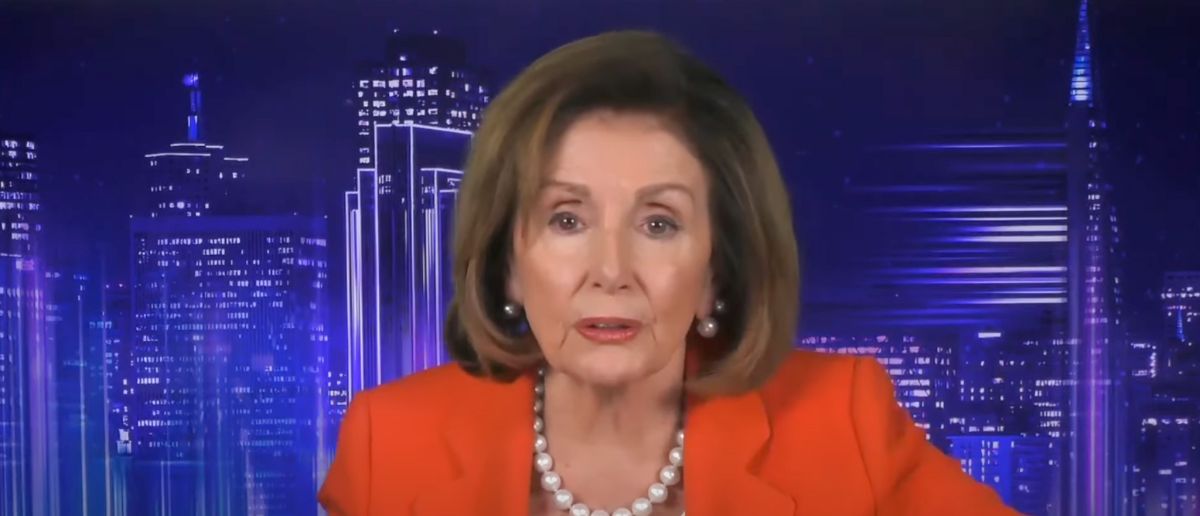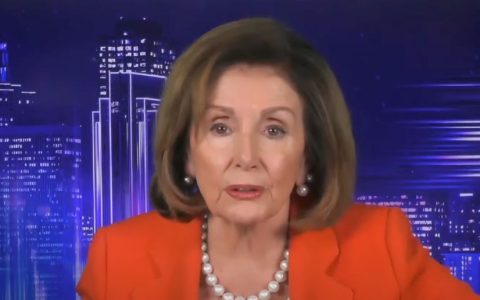
The Trump admin is securing the border. They are pushing everyone out of the way.
That’s why the entire Fox News network went wide-eyed when a Trump admin official said this on camera.
Border Czar Tom Homan Warns Cartels Against Attacks on U.S. Border Patrol and Soldiers
On Tuesday, Border Czar Tom Homan issued a stern warning to Mexican cartels, urging them not to attack American Border Patrol agents or U.S. soldiers stationed along the southern border. His comments came amid growing concerns over cartel activity and the escalating violence along the U.S.-Mexico border.
Homan’s warning is rooted in the firm stance taken by former President Donald Trump when he signed an executive order on his first day in office. This order classified cartels as “foreign terrorist organizations” due to their significant role in facilitating the trafficking of lethal narcotics, violent criminals, and gangs into the United States. This designation, according to Homan, grants the U.S. government additional tools to combat these criminal organizations, and Trump was committed to using these powers to their fullest extent.
“This designation gives us a lot of might, a lot of firepower to attack not only their infrastructure and their operations, but also their money,” Homan said during an interview on America’s Newsroom. “If you take their money away, they can’t bribe officials, they can’t bribe law enforcement.” He continued, stressing the importance of Trump’s approach. “President Trump is serious, and I agree with him 100% on the terrorist designation because of one reason: they have k*lled more Americans than every terrorist organization in the world combined… Just like terrorist organizations, they’ve k*lled thousands of journalists, politicians, judges, prosecutors. So absolutely, it’s a game changer.”
The cartel violence has already had tangible consequences. On January 27, Border Patrol agents were shot at in Fronton, Texas. According to Customs and Border Protection, the gunfire came from cartel members. A spokesperson from the Texas Department of Public Safety confirmed the involvement of cartel factions in this attack. Such incidents highlight the ongoing threat posed by these criminal organizations to law enforcement working to secure the border.
In addition to this, the Trump administration’s efforts to tackle cartel activity are evident in the recent arrest of an MS-13 gang member, wanted for m*rder, and the continued increase in Immigration and Customs Enforcement (ICE) arrests. The current administration’s actions are significantly outpacing those of former President Joe Biden’s administration, particularly in terms of arrests linked to gang violence.
The situation also underscores the rise of violent international gangs that have gained a foothold in the United States. One such group, the Tren de Aragua, a Venezuelan prison gang, began to make its presence felt under the Biden administration. Recently, the Aurora Police Department in Colorado charged nine suspected members of this gang after they were allegedly involved in a violent kidnapping and home invasion of a couple in December.
Host Dana Perino raised the question of what the cartels might be thinking as the Trump administration continues to crack down on their operations, especially in relation to fentanyl trafficking. Homan responded with clarity, explaining that the cartels’ operations were being significantly impacted by the U.S. government’s actions. “Once we secure this border, which we’re pretty much there now, but once we secure the border and shut down their business,” he said, “if they can’t get the drugs across, if they can’t get the s*x trafficking women and children across and the alien smuggling, I mean, they’re making more money right now than they’ve ever made.”
Homan further explained the current cartel warfare that has intensified over control of drug trafficking routes, referred to as “plazas” along the U.S.-Mexico border. “That’s why the cartels of Mexico are having a war between themselves, trying to take control of each other’s plazas because there’s so much money involved.”
However, Homan warned that as the U.S. government continues to tighten its grip on border security, the violence would likely escalate. “Once we secure the border and make it more difficult for them to make money, it’s going to become violent,” he said. “You’re going to see violence on the border. And that’s unfortunate, but we know it’s coming. Border Patrol is prepared. It’s great to have the military on the southern border, they’re prepared.”
He also made it clear that any attack on American Border Patrol agents or military personnel would not go unchallenged. “It’d be a bad move on their part to harm any Border Patrol agent or soldier,” Homan said. “Because I think President Trump will reply with great force. And I think he has the capability of wiping these cartels off the face of the earth if they harm our soldiers or Border Patrol agents. So word of advice: I wouldn’t go there.”
In a show of international cooperation, Mexican President Claudia Sheinbaum also made a significant pledge on January 29, vowing to deploy 10,000 of Mexico’s National Guard soldiers to assist in securing the southern border. This deployment is aimed at curbing the flow of drugs and illegal immigration into the United States, further highlighting the cross-border collaboration necessary to combat cartel activities.
Trump Signs “Laken Riley Act” into Law, Targeting Unauthorized Immigrants Involved in Violent Crimes
Recently, President Donald Trump signed into law his first piece of legislation since taking office. The bill, named the “Laken Riley Act,” is dedicated to a Georgia nursing student whose tragic death became a significant rallying point during Trump’s campaign for the White House. Trump expressed gratitude for the bipartisan support that allowed the bill to pass, noting the collaboration between Republicans and Democrats in both the House and Senate.
The Laken Riley Act mandates that unauthorized immigrants accused of theft or violent crimes must be detained. It was widely supported across party lines, with key figures such as Senator John Fetterman, D-Pa., attending the bill signing at the White House. The legislation is named after 22-year-old Laken Riley, a nursing student at Augusta University. On February 22, 2024, Riley was out for a run when she encountered Jose Antonio Ibarra. According to prosecutors, Ibarra k*lled her during a struggle. Ibarra, who waived his right to a jury trial, was convicted in November on charges of m*rder and other crimes. A judge, who alone heard the case, sentenced him to life without parole.
Trump and other Republicans have criticized former President Joe Biden, claiming that Riley’s death could have been avoided. They point to Ibarra’s previous arrest for illegal entry in September 2022 near El Paso, Texas, during a massive surge in migration. After his arrest, Ibarra was released to pursue his case in immigration court, and Republicans argue that this set the stage for the k*lling.
Rep. Mike Collins, a Georgia Republican, emphasized the significance of the law, stating, “If this act had been the law of the land, he never would have had the opportunity to k*ll her.” Riley’s death also caught the attention of President Biden, who referenced her during his State of the Union address. The mention came after U.S. Rep. Marjorie Taylor Greene shouted, “Say her name!” in response to Biden’s remarks on border security.
Under the new law, federal authorities are required to detain migrants arrested or charged with crimes such as shoplifting, assaulting a police officer, or any crime that results in injury or death. Senator Katie Britt, R-Ala., who played a pivotal role in advancing the bill through the Senate, stressed the importance of the legislation, stating, “If you come into this country illegally and you commit a crime, you should not be free to roam the streets of this nation.”
In addition, the bill includes a provision allowing state attorneys general to sue the federal government over immigration enforcement failures. This would apply to situations where the federal government releases migrants from custody or fails to detain those who have received deportation orders. The provision effectively grants states more power to challenge federal immigration policies, a measure that has been especially important as states, both under the Trump and Biden administrations, have sought to counteract certain federal decisions.
Stay tuned to the DC Daily Journal.





